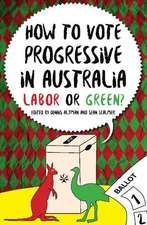Under Attack: Challenges to the Rules Governing the International Use of Force
Autor Belinda Helmkeen Limba Engleză Hardback – 28 iun 2010
Preț: 769.37 lei
Preț vechi: 1030.44 lei
-25% Nou
Puncte Express: 1154
Preț estimativ în valută:
147.31€ • 153.39$ • 122.22£
147.31€ • 153.39$ • 122.22£
Carte tipărită la comandă
Livrare economică 14-28 februarie
Preluare comenzi: 021 569.72.76
Specificații
ISBN-13: 9780754679899
ISBN-10: 0754679896
Pagini: 312
Dimensiuni: 156 x 234 x 25 mm
Greutate: 0.74 kg
Ediția:1
Editura: Taylor & Francis
Colecția Routledge
Locul publicării:Oxford, United Kingdom
ISBN-10: 0754679896
Pagini: 312
Dimensiuni: 156 x 234 x 25 mm
Greutate: 0.74 kg
Ediția:1
Editura: Taylor & Francis
Colecția Routledge
Locul publicării:Oxford, United Kingdom
Recenzii
'In the wake of Kosovo, September 11, and Iraq, what had seemed to be a clear set of rules to govern the post-Cold War world has been put under severe strain. In this detailed and thoughtful account, Belinda Helmke puts this period in its historical perspective, looking back in order to chart a possible way forward.' Simon Chesterman, New York University School of Law , USA & National University of Singapore, Singapore 'Few questions are more important to contemporary world politics than that of whether the legal restraints on the use of force are undergoing reform or attack. In this welcome addition to the debate, Belinda Helmke provides a forensic and carefully balanced analysis that sheds important new light on this crucial issue. It is essential reading for students and old hands alike.' Alex Bellamy, University of Queensland, Australia '...provides an eye-opening and precise account of international legal obligations associated with the post-cold war use of force.' M Rafiqul Islam, Macquarie University, Australia
Notă biografică
Dr Belinda Helmke is a Visiting Scholar at the Centre for Peace and Conflict Studies, University of Sydney, Australia
Cuprins
Introduction: Plan of Attack; Part 1 Great Decision or Great Illusion: International Law and The Use of Force; Chapter 1 Outlawing the Mob: International Law and the Use of Force Prior to 1918; Chapter 2 Renouncing Luxury: International Law and the Use of Force in the Interwar Years; Chapter 3 Where there’s a Will: International Law and the Use of Force During the Cold War; Chapter 4 The State of Play: Developments in the Contemporary International System; Part 2 For the Good of Humanity: The Use of Force for Humanitarian Reasons; Chapter 5 The Snail and the Slug: The Protection of Nationals Abroad; Chapter 6 From Dawn To Dusk: Humanitarian Intervention; Chapter 7 The Uninvited Guest: Intervention in Failed States; Part 3 For the Good of the State: The Use of Force for Individual and Collective Self-defense; Chapter 8 Bolt from the Blue: The Pre-emptive Use of Force; Chapter 9 The Remains of the Reign: The Use of Force to Counter Terrorism; Chapter 10 The (Un)Usual Suspects: The Use of Force against Rogue States; conclu Conclusion: The Road (Not) Taken;
Descriere
Under Attack makes a new contribution to the field of international relations in general and the study of international law and armed conflict in particular, in two core ways. First, it links information from varying disciplines to form a comprehensive picture of state practice and the challenges it poses to the legal rules for the use of force. Secondly, it organizes the information so as to identify two core groups of contemporary justifications used by states: humanitarian reasons and self-defence.











